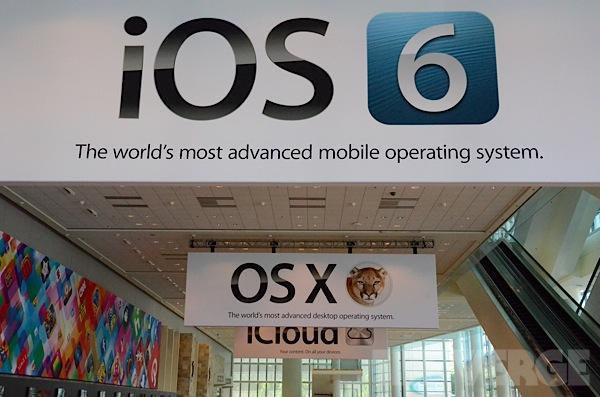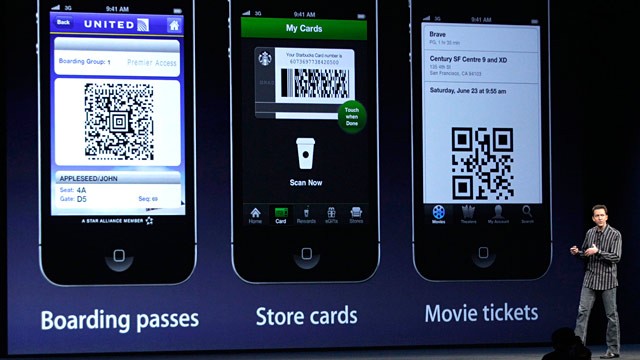
It's no secret that 2013 will be the year of large smartphones. Whether or not they should be called phablets from now on is a matter of personal opinion. Regardless of your thoughts on large devices or top specifications, smartphones are mobile computers. They are more capable than ever. In fact, smartphones might soon be due for a change in identity since they are much more than just "smart" phones. That's a clear misnomer.
Each mobile operating system offers similar characteristics that keep them viable alternatives to one another. In the same sense that some consumers prefer the latest version of Mac OS over Windows on their desktop computer, consumers have become accustomed to certain mobile operating systems on their smartphones. The idea that mobile operating systems have a more profound effect on consumers than their desktop OS counterpart would not be a stretch of the imagination in any sense.
Apple and Microsoft have been asking consumers for a small sum of money to have the latest operating system on their personal computers. Could mobile manufacturers do the same without upsetting the industry as a whole?
I wouldn't be surprised if manufacturers like Apple and HTC would start charging consumers for the latest version of their operating system. Though Apple has a strong history of releasing periodical updates that offer various advantages, I wouldn't be surprised if they started to charge consumers for it.
Apple touts iOS as the "world's most advanced mobile operating system." So, could you put a price on it?

Here's Apple's latest pitch of iOS: "With its easy-to-use interface, amazing features, and rock-solid stability, iOS is the foundation of iPhone, iPad, and iPod touch. And even as others try to catch up, the technologies and features built into iOS keep your Apple devices years ahead."
Furthermore, iOS offers Siri, the largest collection of mobile apps, iCloud, low and high-level OS security features, and enterprise-ready features for professionals. It's no secret that Apple touts the value of iOS as a feature in itself based on one sentence on the iOS homepage.
iOS updates are free.
If you aren't convinced by Apple and their supreme advertising and marketing tactics that they could charge for their OS, here's another perspective on the matter.
It could be argued that Samsung's TouchWiz is the best manufacturer skin of them all. It offers additions and features that stock Android does not and that's not my opinion: it's a fact. Though I prefer Android's latest Jelly Bean over any additional benefits that TouchWiz may offer, it would be foolish not to acknowledge the benefits that TouchWiz adds to their entire Galaxy Note line. Needless to say, I think most benefits of Samsung's TouchWiz are fully optimized on their Galaxy Note II and tablets. So, could you put a price on TouchWiz?

TouchWiz touts SAFE as a security precaution developed by Samsung themselves to make the Galaxy Note II more secure and easier for your employer's IT department to manage. Their S Pen is optimized to remember test, shapes, and equations to maximize productivity. Then there's Popup Video and Popup Note to "redefine multitasking." To top it off, TouchWiz features S Voice, Smart Gestures, and Smart Stay all of which improve the average consumer's experience.
Take a step back and look at the situation. It might be less believable for Apple or Google to directly charge consumers for the latest operating system or update. Since it's been free for so long manufacturers would be embracing a risk they have never faced before in the mobile ecosystem. On the contrary, charging for the latest version of Sense or TouchWiz could be more believable. Not only would the additional features of the UI be justified on a larger display, Samsung could further differentiate TouchWiz as a feature that other manufacturers can't match. TouchWiz could be turning into a premium feature right before us.
And don't forget about your mobile provider. Whether you're on AT&T's network or Verizon's, who is to say they couldn't start charging for firmware or software updates?
I want to know what you think about manufacturer skins and updates. Would you pay to have the latest OS on your smartphone if it offered real improvements? What about skin overlays like HTC Sense or Samsung's TouchWiz UI? Could you justify paying for the additional features that manufacturer skins offer? If I had a say in the matter, I'd only consider paying for skins if all devices shipped with a stock version of their OS. Imagine how much Samsung could recoup if they shipped the Galaxy Note II with stock Android and offered TouchWiz as an update. I think it's a business opportunity for most manufacturers that we shouldn't rule out in the future. You know the drill! Let me know your thoughts in the comments!